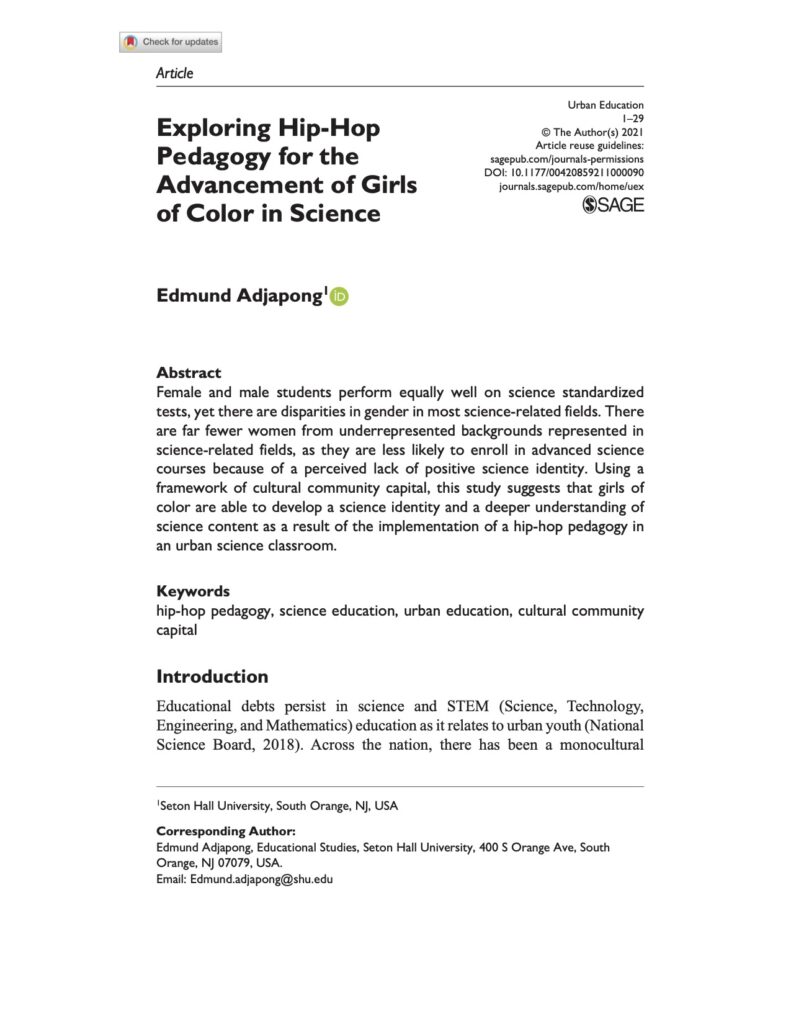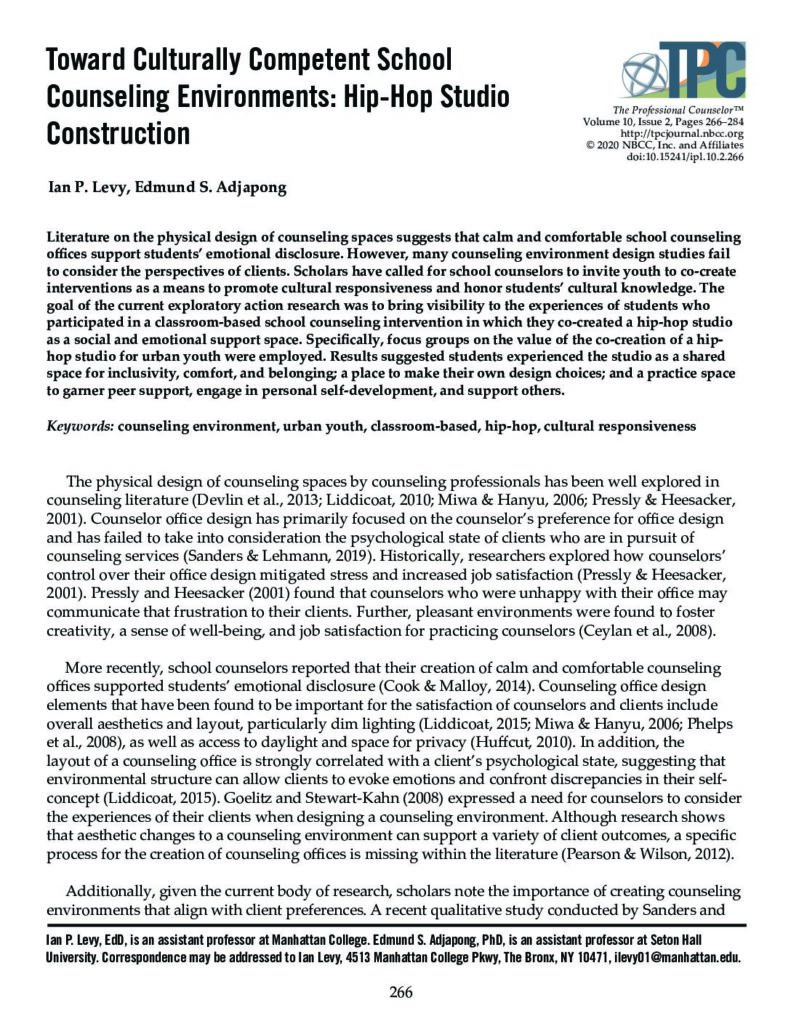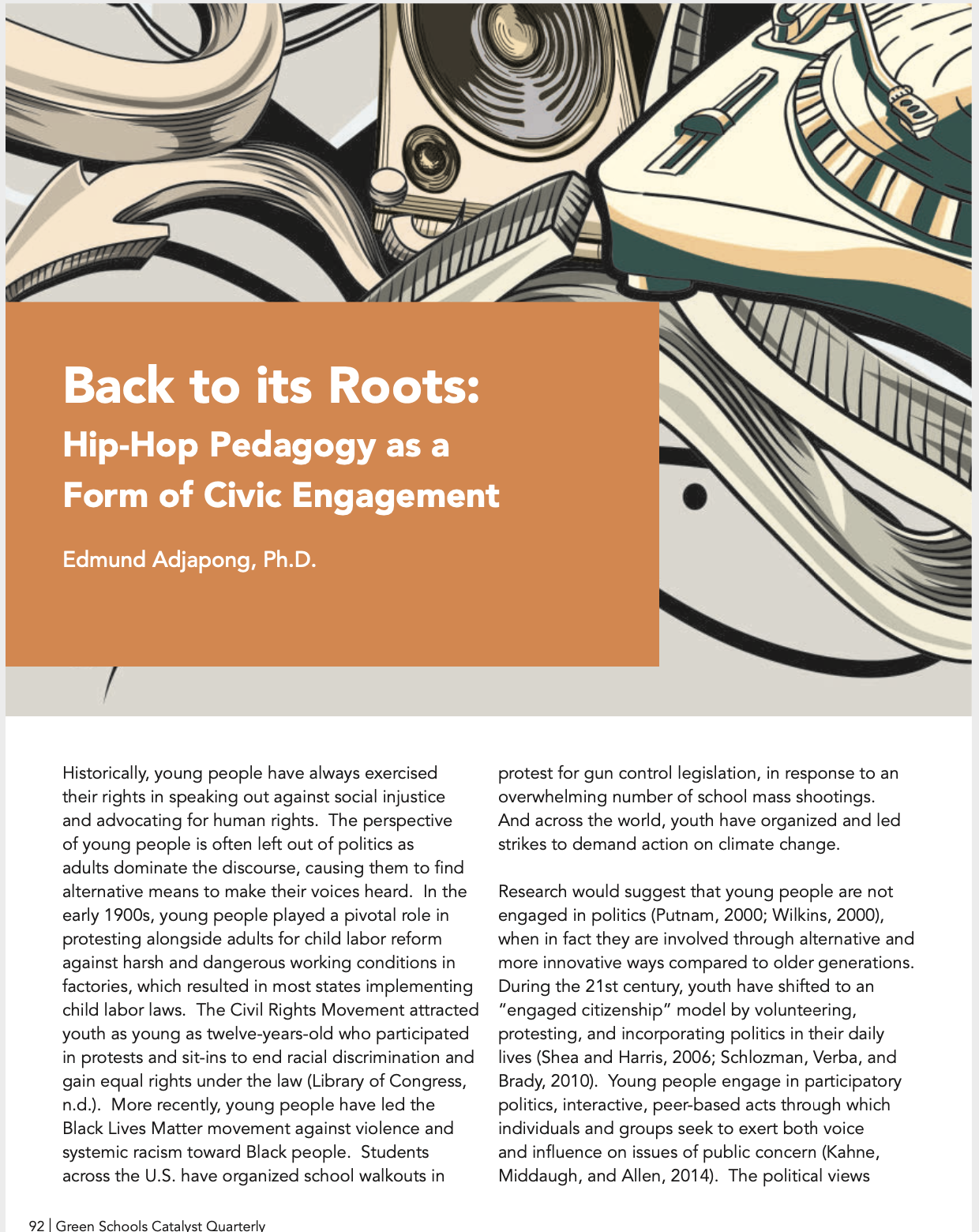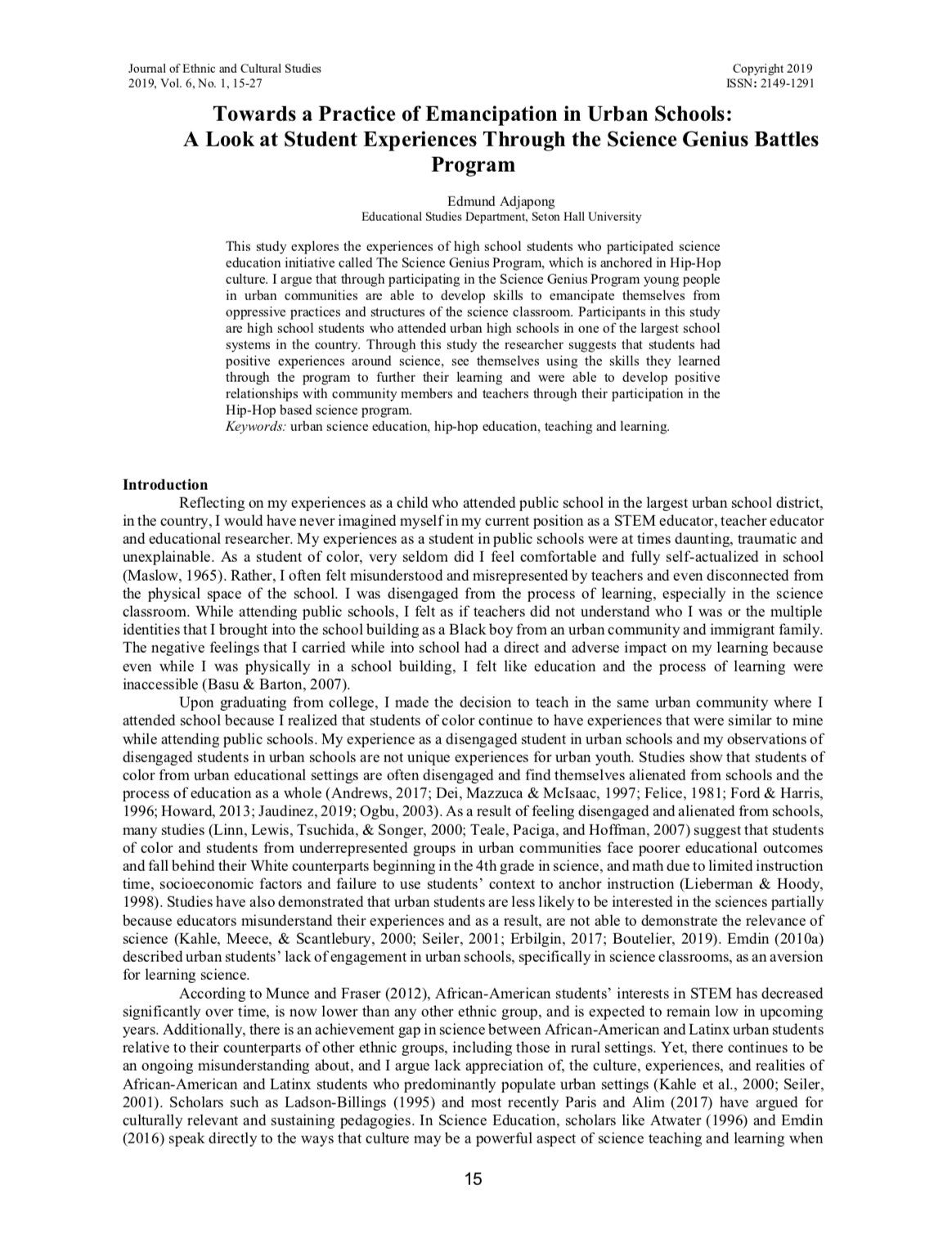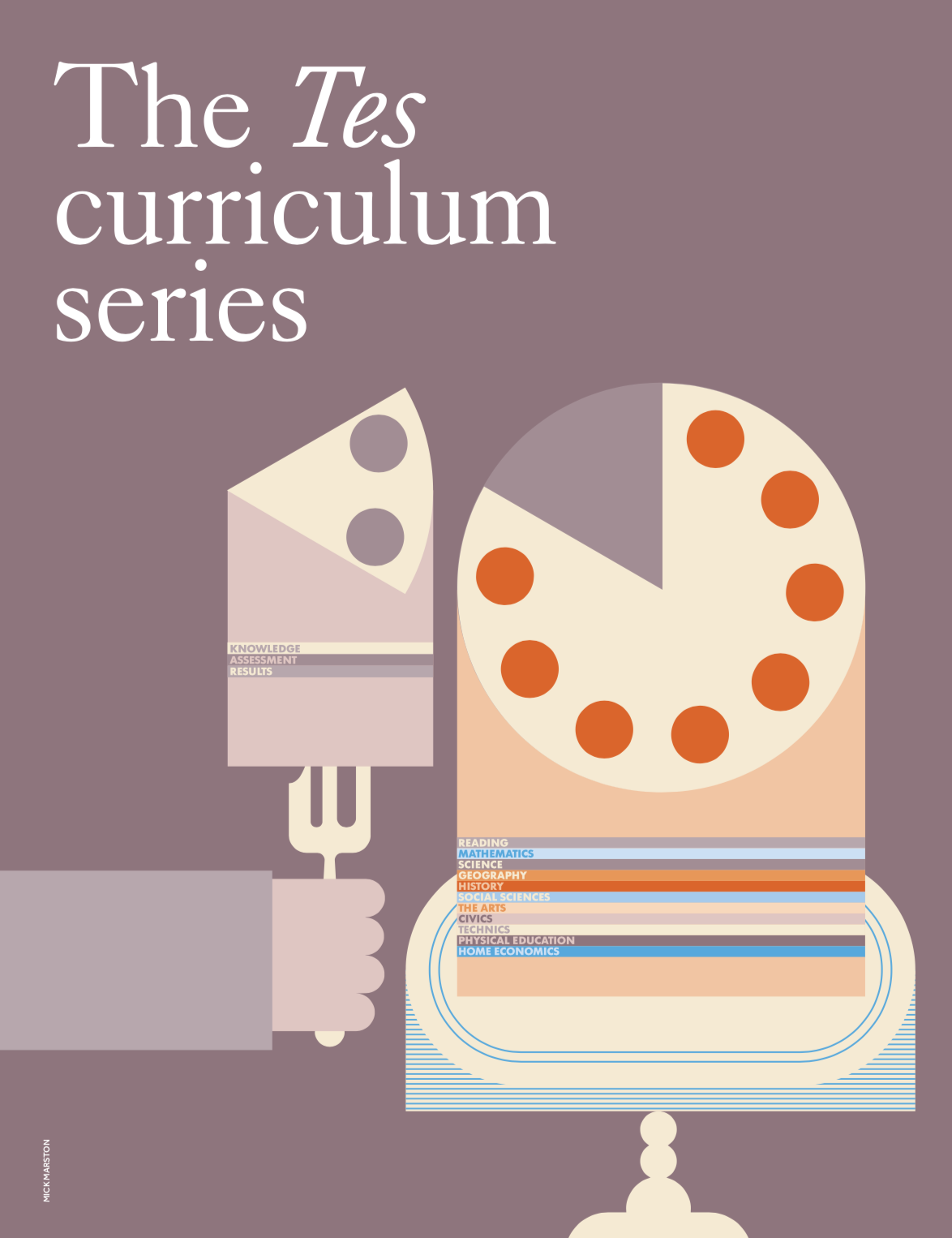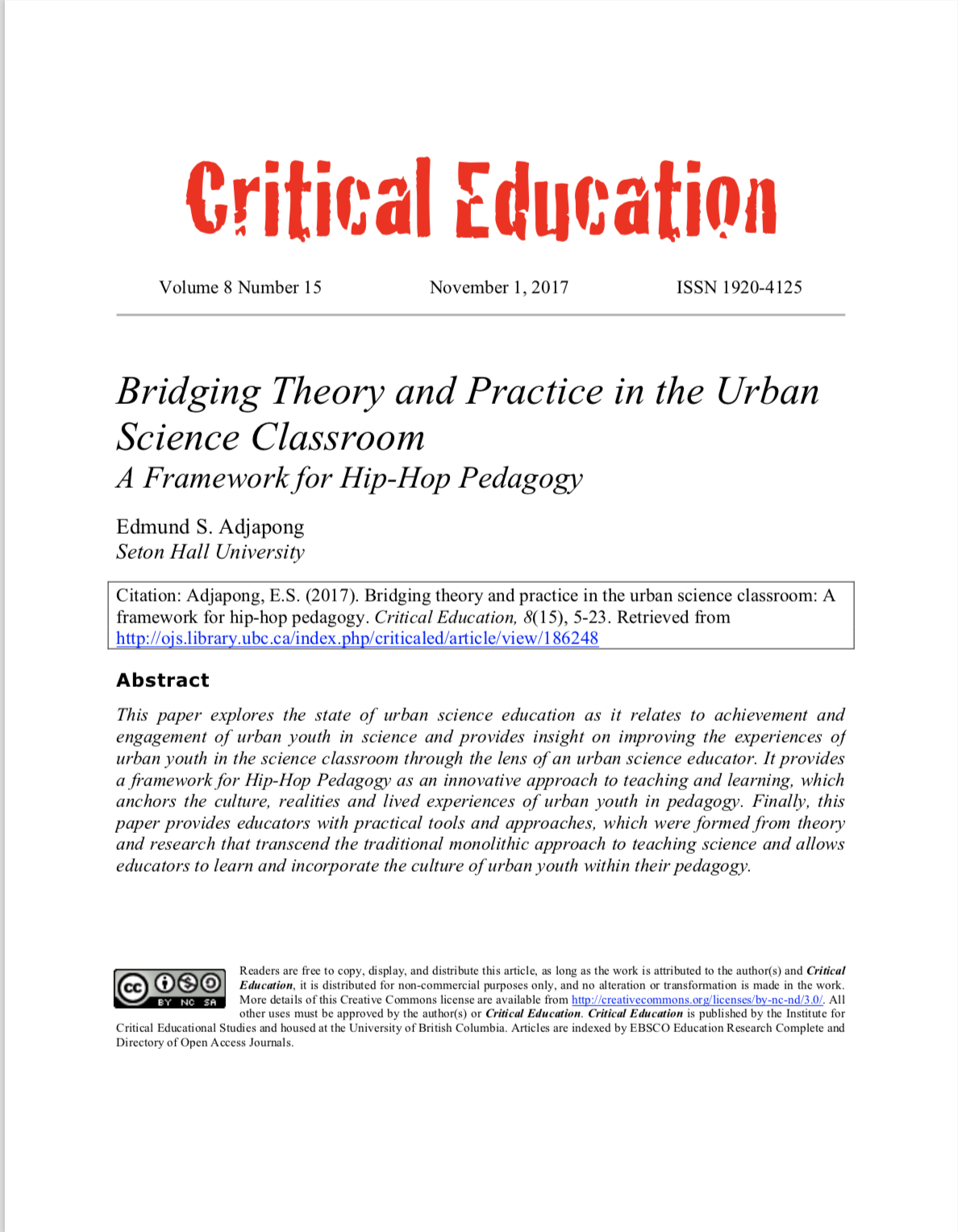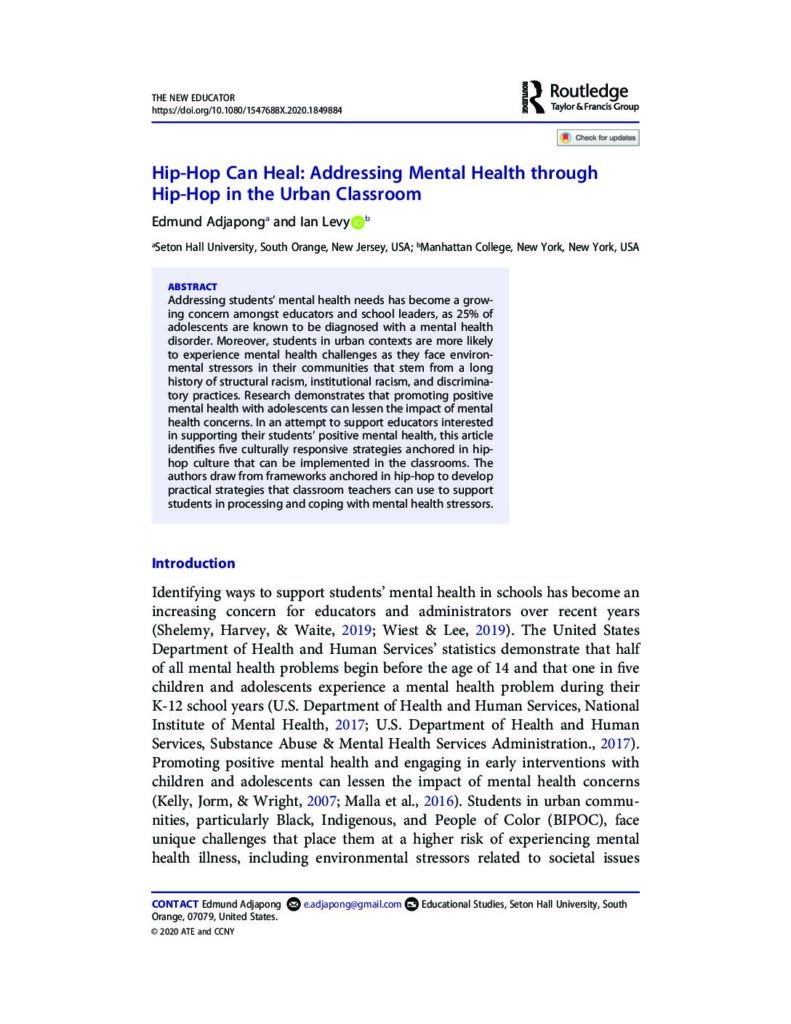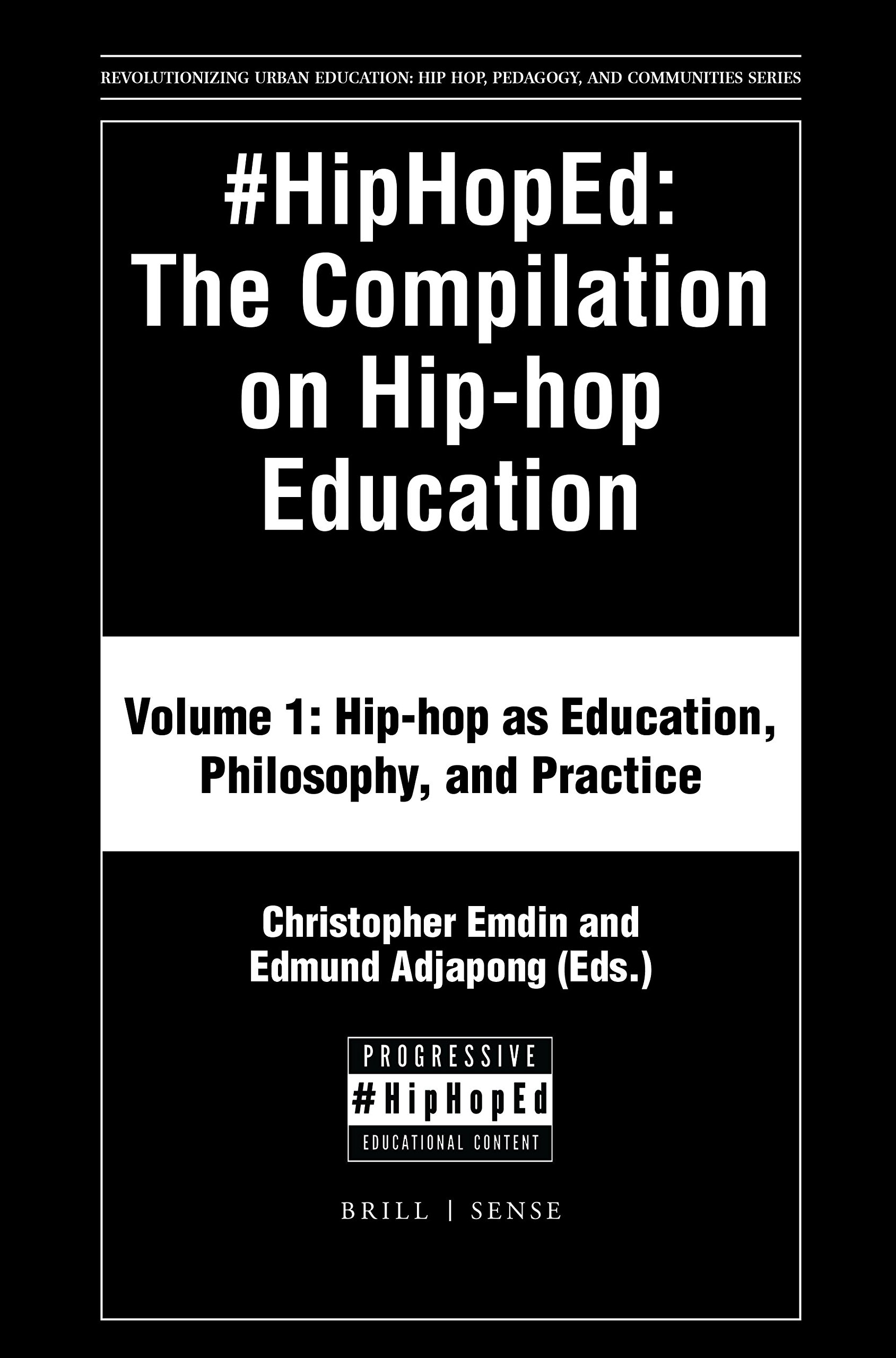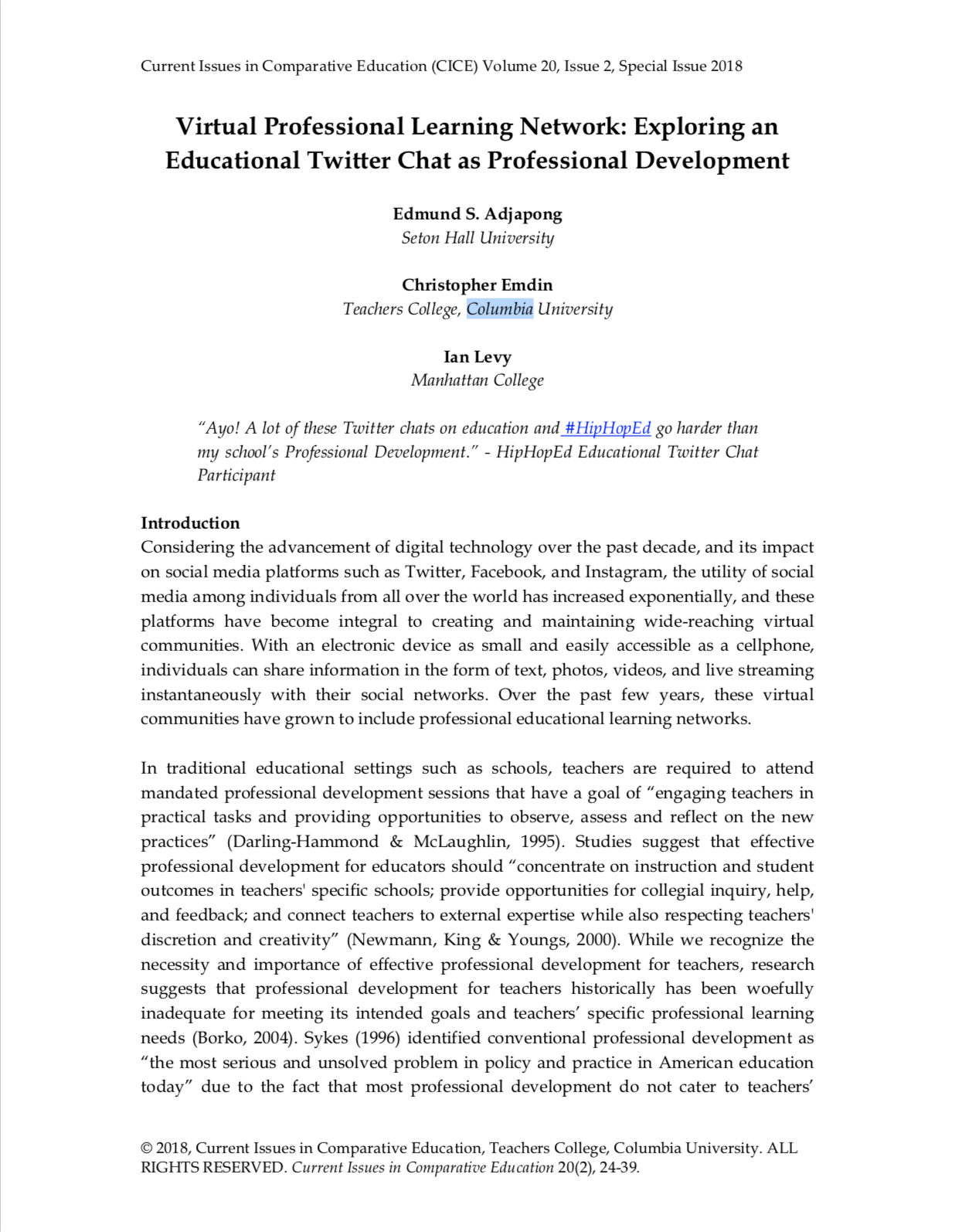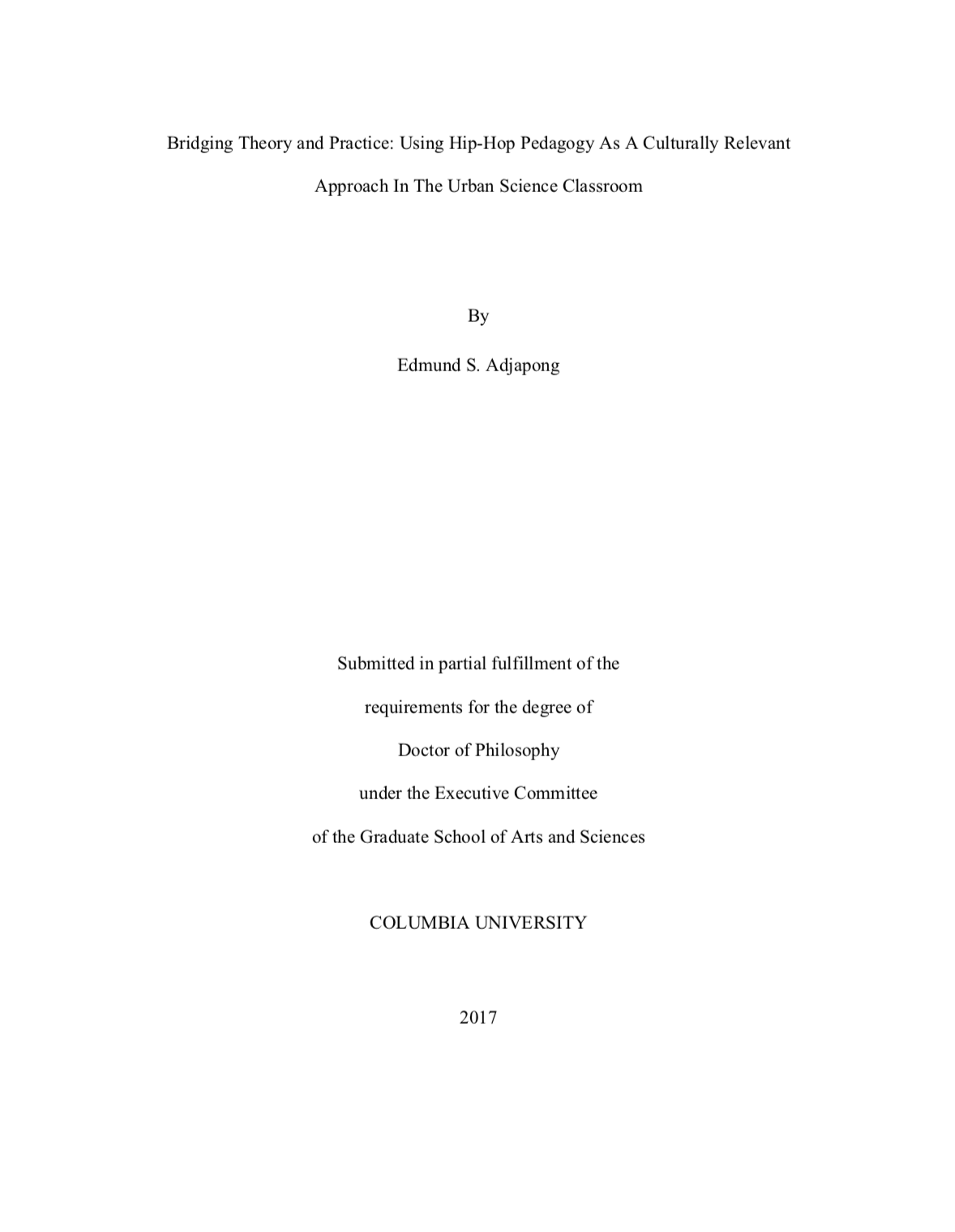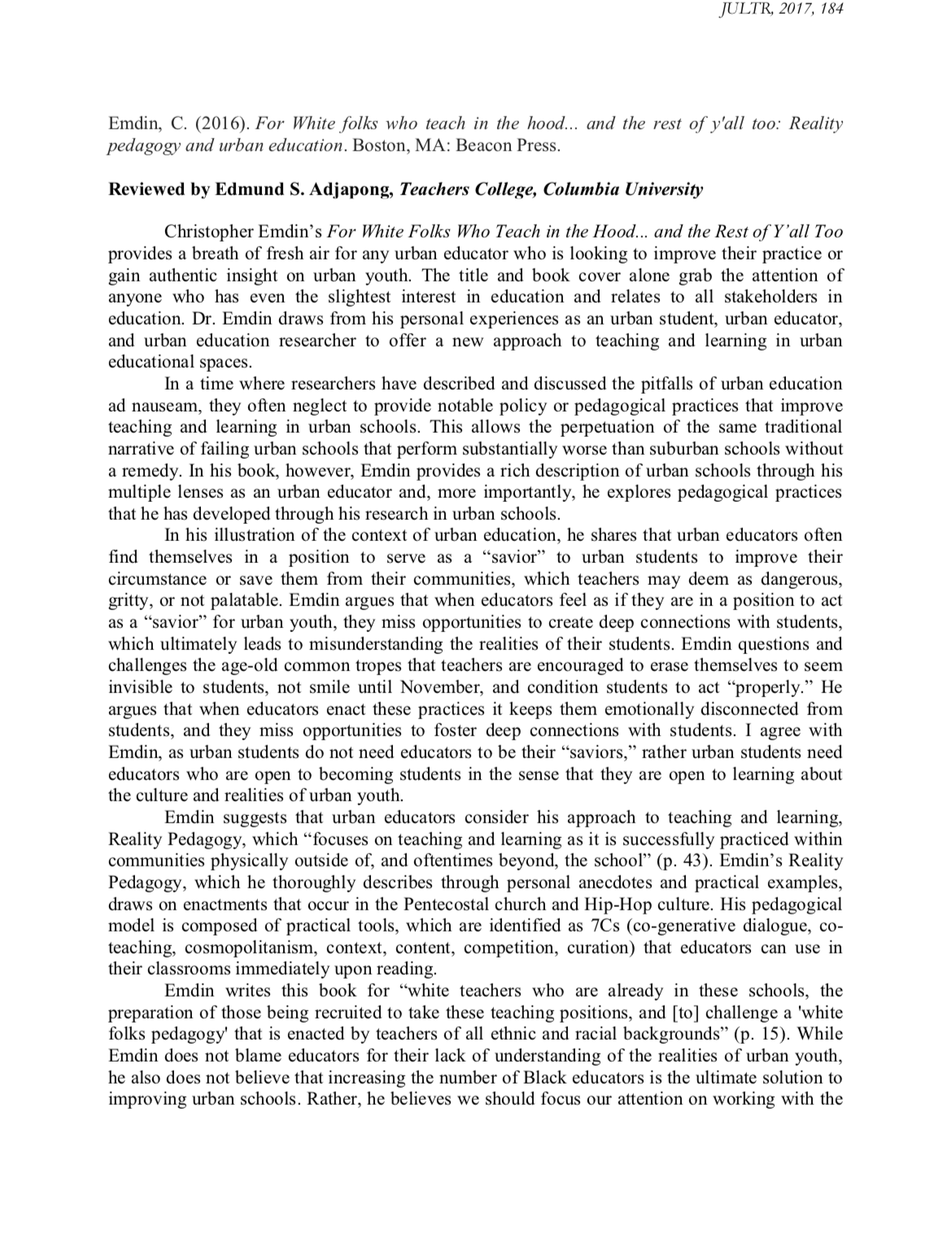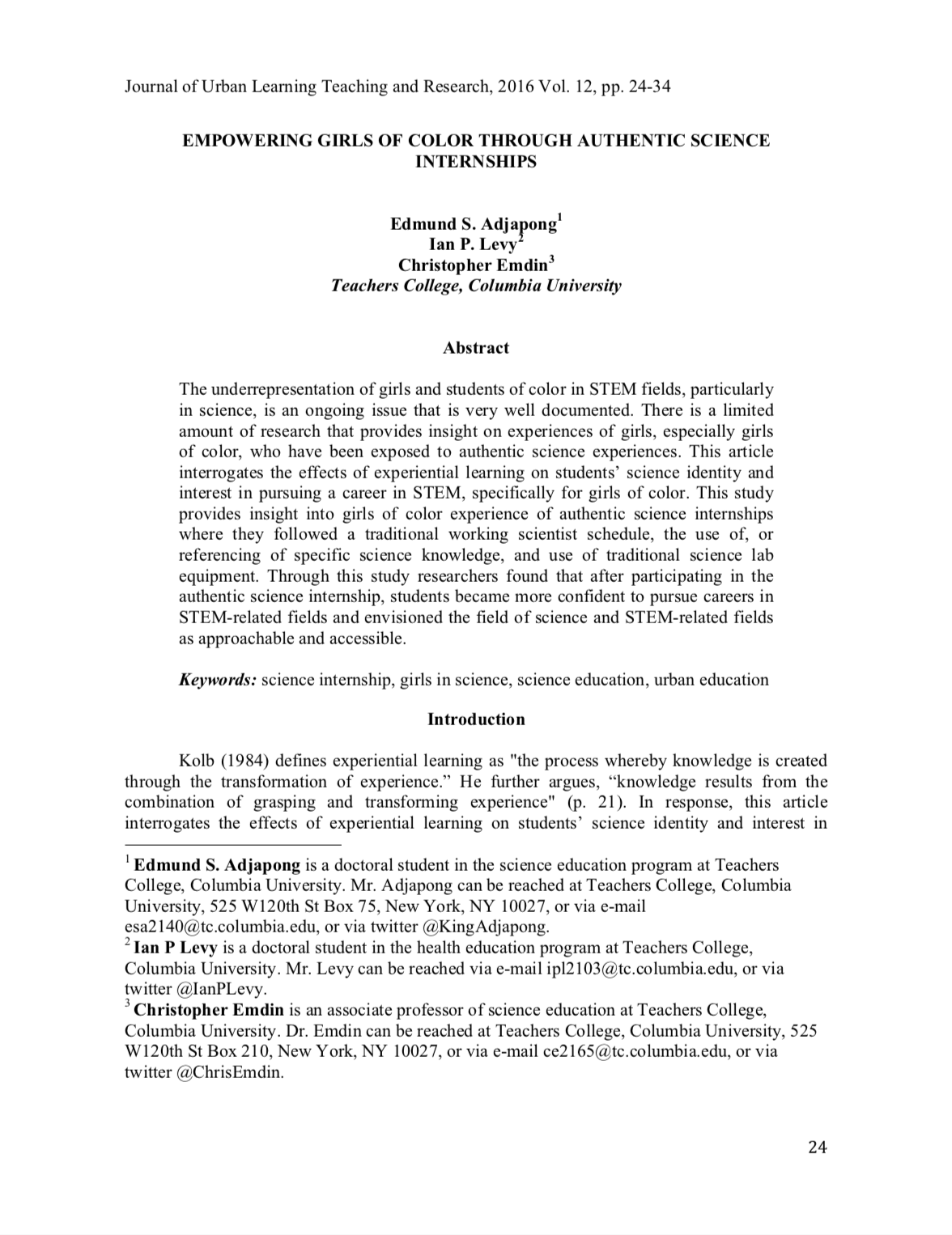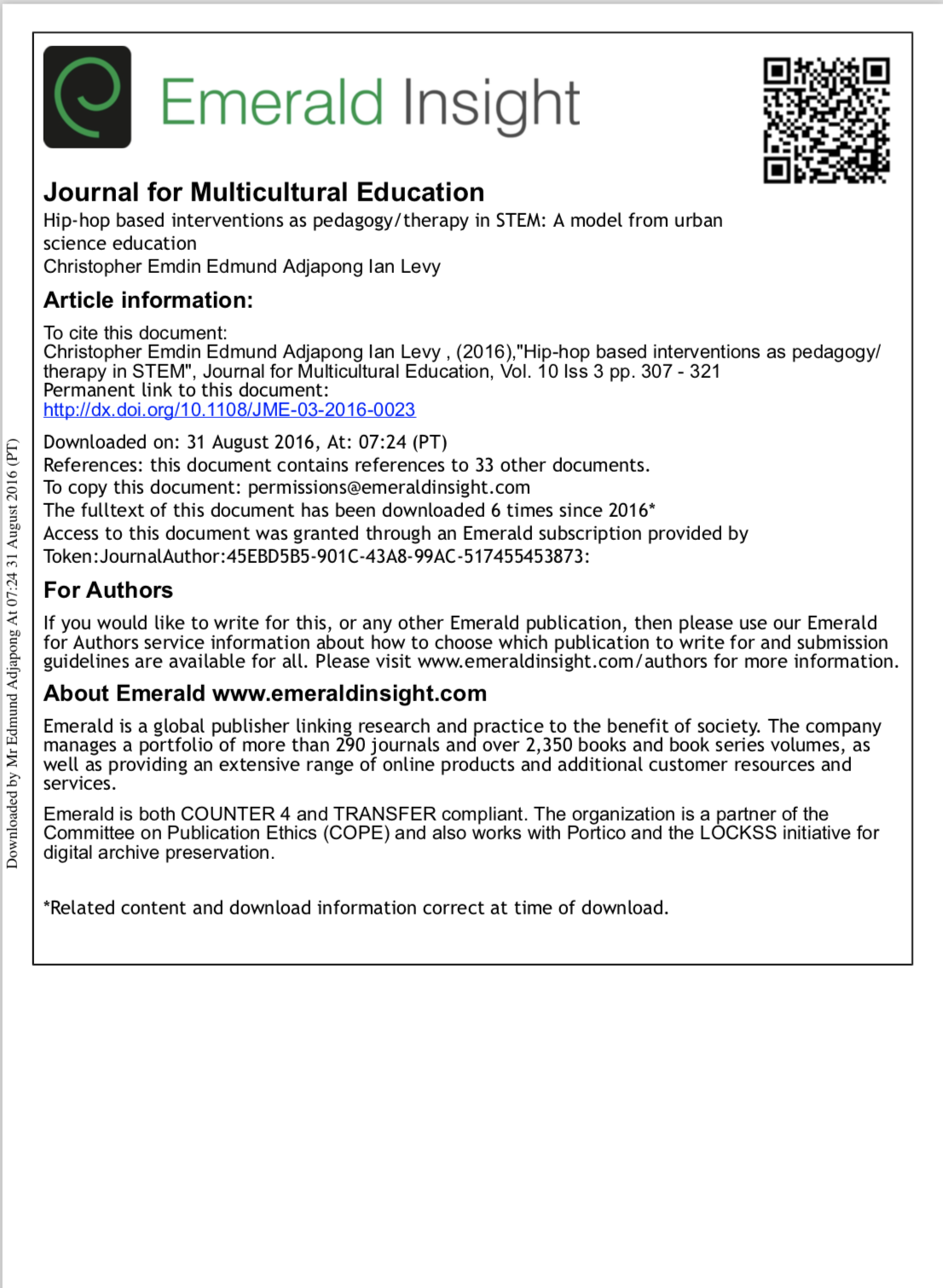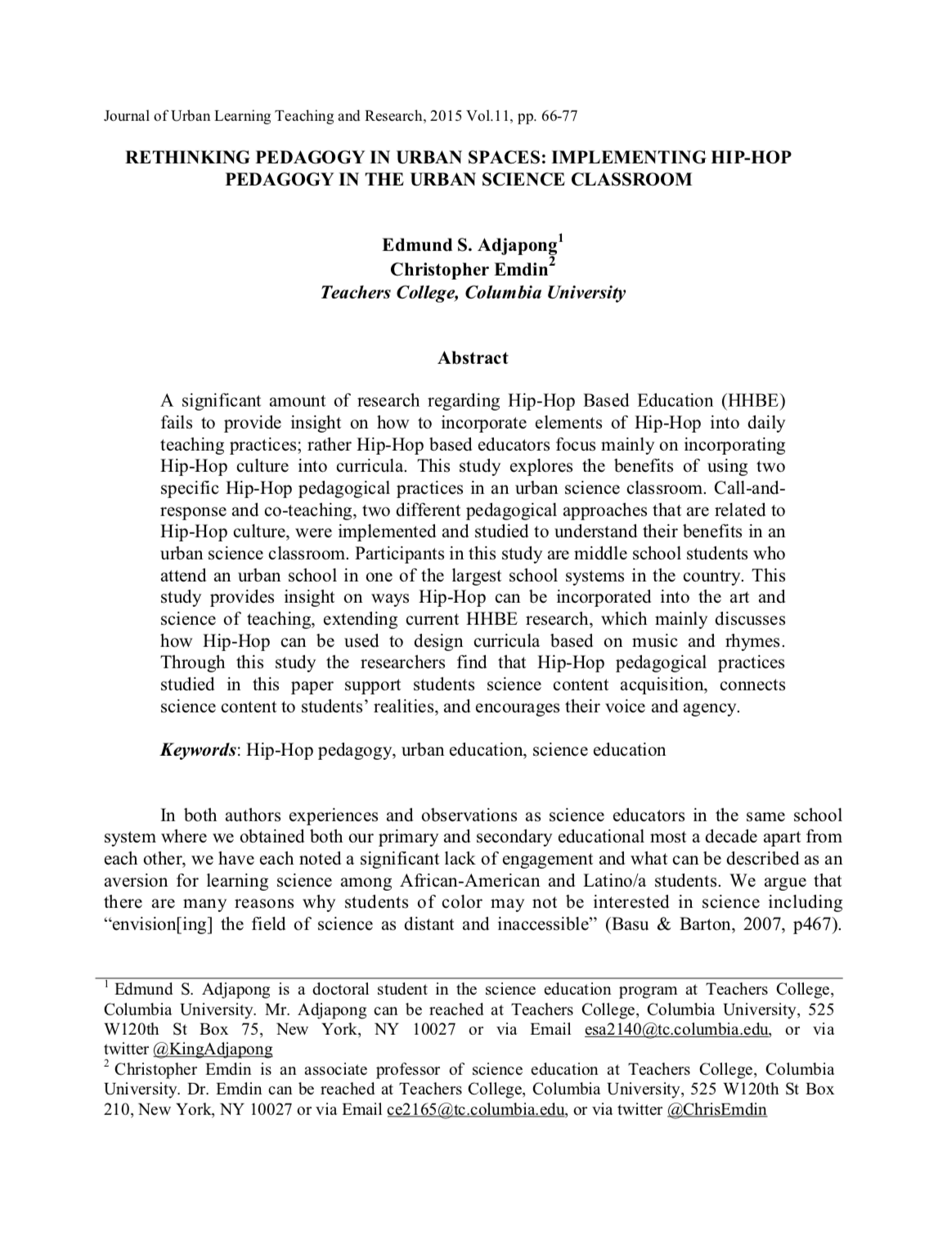Publications
Abstract: Female and male students perform equally well on science standardized tests, yet there are disparities in gender in most science-related fields. There are far fewer women from underrepresented backgrounds represented in science-related fields, as they are less likely to enroll in advanced science courses because of a perceived lack of positive science identity. Using a framework of cultural community capital, this study suggests that girls of color are able to develop a science identity and a deeper understanding of science content as a result of the implementation of a hip-hop pedagogy in an urban science classroom.
Abstract: Literature on the physical design of counseling spaces suggests that calm and comfortable school counseling offices support students’ emotional disclosure. However, many counseling environment design studies fail to consider the perspectives of clients. Scholars have called for school counselors to invite youth to co-create interventions as a means to promote cultural responsiveness and honor students’ cultural knowledge. The goal of the current exploratory action research was to bring visibility to the experiences of students who participated in a classroom-based school counseling intervention in which they co-created a hip-hop studio as a social and emotional support space. Specifically, focus groups on the value of the co-creation of a hip-hop studio for urban youth were employed. Results suggested students experienced the studio as a shared space for inclusivity, comfort, and belonging; a place to make their own design choices; and practice space to garner peer support, engage in personal self-development, and support others.
Dr. Edmund Adjapong discusses how hip-hop pedagogy’s roots in hip-hop culture and culturally relevant pedagogy influences its use in the classroom as a tool for promoting civic engagement.
Abstract: This study explores the experiences of high school students who participated science education initiative called The Science Genius Program, which is anchored in Hip-Hop culture. I argue that through participating in the Science Genius Program young people in urban communities are able to develop skills to emancipate themselves from oppressive practices and structures of the science classroom. Participants in this study are high school students who attended urban high schools in one of the largest school systems in the country. Through this study the researcher suggests that students had positive experiences around science, see themselves using the skills they learned through the program to further their learning and were able to develop positive relationships with community members and teachers through their participation in the Hip-Hop based science program.
Abstract: This paper explores the state of urban science education as it relates to achievement and engagement of urban youth in science and provides insight on improving the experiences of urban youth in the science classroom through the lens of an urban science educator. It provides a framework for Hip-Hop Pedagogy as an innovative approach to teaching and learning, which anchors the culture, realities and lived experiences of urban youth in pedagogy. Finally, this paper provides educators with practical tools and approaches, which were formed from theory and research that transcend the traditional monolithic approach to teaching science and allows educators to learn and incorporate the culture of urban youth within their pedagogy.
Abstract: Addressing students’ mental health needs has become a grow- ing concern amongst educators and school leaders, as 25% of adolescents are known to be diagnosed with a mental health disorder. Moreover, students in urban contexts are more likely to experience mental health challenges as they face environmental stressors in their communities that stem from a long history of structural racism, institutional racism, and discriminatory practices. Research demonstrates that promoting positive mental health with adolescents can lessen the impact of mental health concerns. In an attempt to support educators interested in supporting their students’ positive mental health, this article identifies five culturally responsive strategies anchored in hip-hop culture that can be implemented in the classrooms. The authors draw from frameworks anchored in hip-hop to develop practical strategies that classroom teachers can use to support students in processing and coping with mental health stressors.
Abstract:
The first volume of #HipHopEd: The Compilation on Hip-hop Education brings together veteran and emerging scholars, practitioners and students from a variety of fields to share their research and experiences as it relates to the use of hip-hop in educational spaces. This text extends the current literature on hip-hop and education and focuses on the philosophy of hip-hop and education, the impact that hip-hop culture has on the identity of educators, and the use of hip-hop to inform mental health practices. Through their personal and practical experiences, authors of this text will spark new and creative uses of hip-hop culture in educational spaces.
Abstract: This dissertation explores the context of urban science education as it relates to the achievement and engagement of urban youth. This study provides a framework for Hip-Hop Pedagogy, an approach to teaching and learning anchored in the creative elements of Hip-Hop culture, in STEM as an innovative approach to teaching and learning demonstrates the effect that Hip-Hop Pedagogy, as a culturally relevant approach to teaching has on teaching and learning in an urban science classroom. This study establishes practical tools and approaches, which were formed from by theory and research that transcend the traditional monolithic approaches to teaching science. Participants in this study are middle school students who attend an urban school in one of the largest school systems in the country. This research showed that as result of utilizing Hip-Hop pedagogical practices, students reported that they developed a deeper understanding of science content, students were more likely to identify as scientists, and students were provided a space and opportunities to deconstruct traditional classroom spaces and structures.
Abstract: The underrepresentation of girls and students of color in STEM fields, particularly in science, is an ongoing issue that is very well documented. There is a limited amount of research that provides insight on experiences of girls, especially girls of color, who have been exposed to authentic science experiences. This article interrogates the effects of experiential learning on students’ science identity and interest in pursuing a career in STEM, specifically for girls of color. This study provides insight into girls of color experience of authentic science internships where they followed a traditional working scientist schedule, the use of, or referencing of specific science knowledge, and use of traditional science lab equipment. Through this study, researchers found that after participating in the authentic science internship, students became more confident to pursue careers in STEM-related fields and envisioned the field of science and STEM-related fields as approachable and accessible.
Purpose – This paper aims to argue that providing youth of color with opportunities to explore content while re ecting on and sharing mental health concerns is an under-focused dimension of teaching and learning that has the potential to positively impact these students’ academic achievement in science, technology, engineering and mathematics (STEM) disciplines
Design/methodology/approach – This paper used a qualitative study to interrogate a teaching/ learning model through a hip-hop-based science program.
Findings – Because urban youth of color are traditionally most disengaged in STEM and also the ones who are the least likely to seek or be provided with mental health tools/services, it is suggested that there is a connection between their low academic achievement and the absence of opportunities for them to address emotions that impact their academic success. Furthermore, if these youths come from communities where mental health stressors are highly prevalent, and teaching is most restrictive, a model for teaching that considers practices that address both their academic and mental health needs becomes necessary.
Abstract: The underrepresentation of girls and students of color in STEM fields, particularly in science, is an ongoing issue that is very well documented. There is a limited amount of research that provides insight on experiences of girls, especially girls of color, who have been exposed to authentic science experiences. This article interrogates the effects of experiential learning on students’ science identity and interest in pursuing a career in STEM, specifically for girls of color. This study provides insight into girls of color experience of authentic science internships where they followed a traditional working scientist schedule, the use of, or referencing of specific science knowledge, and use of traditional science lab equipment. Through this study, researchers found that after participating in the authentic science internship, students became more confident to pursue careers in STEM-related fields and envisioned the field of science and STEM-related fields as approachable and accessible.

